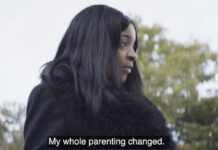In a recently published study reviewing medication prescription in the Journal of Autism and Developmental Disorders, Madden and her colleagues report that children diagnosed with an Autism Spectrum Disorder (ASD) are much more likely to be prescribed a psychotropic medication compared to their peers who do not have this diagnosis.
“On the whole, children with ASD were 11.4 times more likely to be treated with psychotropics as compared to non-ASD peers. When other psychiatric diagnoses were present in the record, children with ASD were consistently more likely than peers to receive psychotropics.”

The researchers note that pharmacological interventions are prescribed not for the “core symptoms” of ASD which include difficulties in social and communication interactions and restricted or repetitive behavioral patterns, but “to alleviate commonly associated symptoms and problem behaviors, such as irritability, tantrums, aggression, self-harm, hyperactivity, impulsivity, distractibility, mood dysregulation.”
Previous studies have also found that medication use is common among children diagnosed with ASD and this is even more likely when children are older and have other psychiatric diagnoses as well. One study by Mandell and his colleagues using Medicaid claims data reports that “male, older, and white children; those who were in foster care or in the Medicaid disability category; those who received additional psychiatric diagnoses; and those who used more autism spectrum disorder services were more likely to have used psychotropic drugs.”
This study was conducted to provide up to date numbers on the prescription of psychotropic medication to children diagnosed with ASD. The researchers extracted their data from 5 US-based non-profit health plans. They compared a cohort of children diagnosed with ASD to a cohort not diagnosed with ASD and matched the two groups on age, sex, and enrollment in the healthcare plan using a 10:1 ratio. Thus the group they finally analyzed comprised of 7901 children with ASD and 79,010 children without ASD.
Their results indicate that children diagnosed with ASD were quite likely to be diagnosed with another psychiatric condition – 73.2% were given another diagnosis – “the most common psychiatric comorbidities among children with ASD were attention disorders (31.8 %), followed by anxiety (16.7 %), disruptive disorders (13.4 %), and depression (7.6 %).”
Another study published in the same journal earlier this year indicated that ADHD may be over diagnosed in children with ASD because of the appearance of symptom overlap between the two. An additional finding in this study was that children diagnosed with ASD were more likely compared to their non-ASD counterparts to be diagnosed with another psychiatric condition. This leads to another result – almost half, that is, 48.5% of children took a psychotropic medication, with the most common prescription being for drugs that treat ADHD. Also, they were 11.4 times more likely to use medication compared to non-ASD peers.
Another increased prescription likelihood was observed in cases where no comorbid psychiatric diagnosis was given – “for example, 0.3% of children who had neither ASD nor ADHD diagnosis received an ADHD- associated medication, whereas 10.4% of children with ASD but no ADHD diagnosis received such medications. Similar to previous findings, the percentage of children who were prescribed psychotropics increased with age – 59.1% of adolescents were prescribed medication compared to 39% of school-aged children and 5.7% of preschool aged children. Finally, the researchers note that they found evidence for polypharmacy, or the prescription of multiple classes of medication at the same time.
They review their findings in light of reports of efficacy or lack thereof of psychotropic medication for ASD. For example, citing the American Association of Child and Adolescent Psychiatry, they note that even though antipsychotics have been found to be effective in associated symptoms of ASD, their adverse effects have led to recommendations that their use be limited to patients who are severely impaired or at risk of injury.
Moreover, “evidence for the use of antidepressants, ADHD treatments, and mood stabilizers in children with ASD is mixed or lacking” as is evidence for the effectiveness of 1) long-term use of psychotropics 2) use with older children 3) use of multiple classes of medication at the same time.
The researchers identify some limitations of their study. First, the lack of data on the level of impairment of children presents an obstacle when interpreting the results. Also, their database could only track dispensing and not actual use of medication. This precludes conclusions about the reasons medications were prescribed. Thus even though they based their findings on a large sample, they could not provide information on the appropriateness or usefulness of the medications prescribed.
They conclude, “There is currently a lack of strong published evidence to support the effectiveness and safety of the levels of use we observed; more research in this area is clearly necessary. In addition, population-based studies to understand the drivers behind the decision to medicate, the quality of follow-up care, and the availability of effective non-drug alternatives are merited.”
****
Madden, J. M., Lakoma, M. D., Lynch, F. L., Rusinak, D., Owen-Smith, A. A., Coleman, K. J., & … Croen, L. A. (2016). Psychotropic Medication Use among Insured Children with Autism Spectrum Disorder. Journal Of Autism And Developmental Disorders. doi:10.1007/s10803-016-2946-7 (Abstract)















Chemical restraints rather than visible, physical restrains for the children. Everyone can stomach giving “medicine” to the children , but not physical restraints, that is cruel.
No one feels bad for giving medicine.
Where does this end? No children from today’s children.https://en.wikipedia.org/wiki/List_of_sovereign_states_and_dependent_territories_by_fertility_rate
Report comment
I havent looked at the Boycott Autism Speaks websites in a wile, thanks for the reminder. Gosh there are so many of them. Why do people with autism hate Autism Speaks ? http://www.google.com/search?q=boycott+autism+speaks
Click on images after the search too.
Report comment
Cat,
Since this is Thanksgiving, I wanted to post a positive comment. Many years ago, I had a co-worker with a son with Asperger Syndrome. Her attitude was that she wouldn’t change a thing about him and thought he was fine just the way he was. Too bad she couldn’t be cloned. 🙂
Happy Thanksgiving to everyone.
Report comment
“Kids Diagnosed with Autism More Likely to Get Psychotropic Drugs”
Yes, undoubtedly this is true. But the reason is that kids have not yet learned to reject the ASD and ADHD labels, and they have not yet learned that their parent are wrong to be “othering them”, and the parents and the doctors are not yet getting hit with lawsuits, and because kids have not yet learned that the proper response to these doctors is simply the middle finger.
Nomadic
Report comment